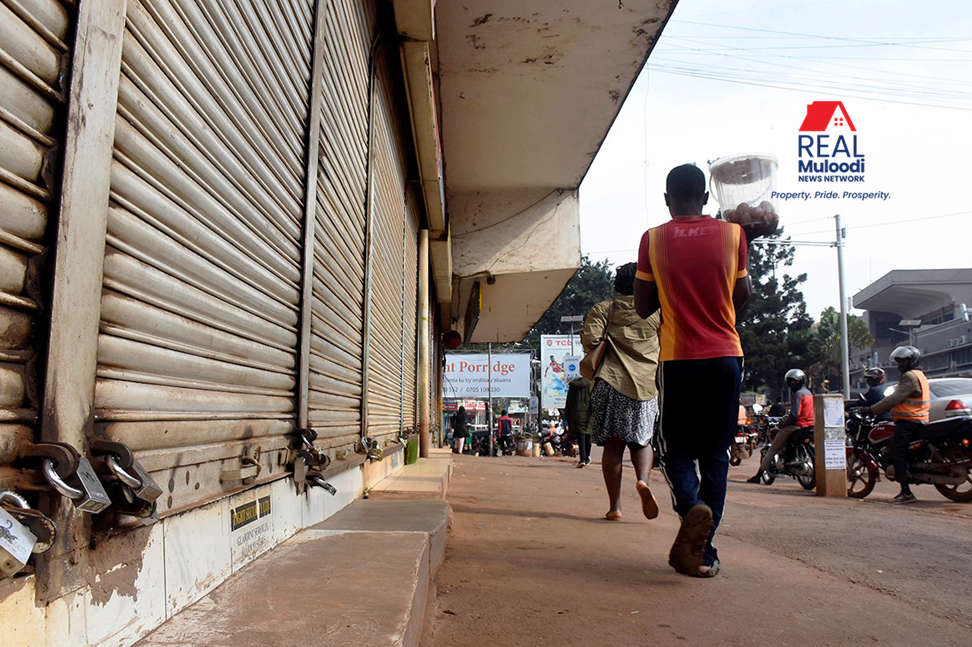UGANDA, Kampala | Real Muloodi News | Kampala’s commercial sector is experiencing significant disruption as traders, under the Kampala Capital City Traders Association (KACITA), have initiated a strike.
The strike, prompted by unmet demands and the postponement of a scheduled meeting with President Yoweri Museveni, has led many to close their shops, leaving key shopping areas in the city partially operational.
The traders’ grievances centre around the implementation of the Electronic Fiscal Receipting and Invoicing Solution (EFRIS) by the Uganda Revenue Authority (URA), high taxes, and the presence of foreign traders in retail spaces.
The strike began after a promised follow-up meeting with the President was cancelled due to renovations at Kololo Independence Grounds. This meeting was expected to address traders’ demands, including the suspension of EFRIS, a review of tax policies, and measures against foreign traders allegedly taking over local retail businesses.
Issa Ssekitto, KACITA’s spokesperson, emphasised the traders’ determination to continue their strike until their issues are addressed.
“We need a direct response from the president, not just from the Minister of Kampala,” he stated, highlighting the dissatisfaction with the current situation.
Government’s Position and Reaction
State Minister for Kampala Capital City and Metropolitan Affairs, Kyofatogabye Kabuye, urged traders to be patient and allow the President time to consider their concerns.
He also suggested that those unwilling to work could return to rural areas and engage in farming.
“Go to the village, like in Kyanamukaka in Masaka District, and plant pineapples… go to Bulemezi and plant coffee. Don’t disturb me from Kampala here,” Kabuye remarked, indicating the government’s firm stance against the protests.
Kabuye also expressed concern about the socio-political climate, citing potential influence from foreign-funded anti-corruption protests, and urged traders to act responsibly.
Mixed Reactions Among Traders
The strike has revealed a division among traders. While many have closed their shops in solidarity, others continue to operate, citing economic pressures such as loan repayments and the need to maintain customer relationships.
“We want to close, but we have loans. This system [EFRIS] being implemented by URA is unfriendly to everyone,” said Ambrose Kiwanuka, a shop operator at Nakasero Market.
The inconsistency in shop closures across Kampala’s business district has led to confusion. Major commercial centres like Kikuubo, Qualicel Bus Terminal, and others were shut down.
Places like Annet Plaza and Pioneer View remained open. Some traders were left stranded, unable to access goods due to locked shops.
Sarah Adongo, a retailer from Namugongo, expressed her frustration, stating, “If Kikuubo closes, we suffer the most since it has all the items we need.”
Many traders have voiced their concerns about EFRIS, with some advocating for its abolition or better education on its use.
“President Museveni only listens to manufacturers. He does not listen to the plea of local traders, who also pay taxes to this government,” said Solomon Kisakye, highlighting a sentiment of neglect among local business owners.
Others have criticised the tax burden on imported goods and the competitive pressure from foreign traders, particularly from China, operating in retail.
The traders argue that these factors have increased smuggling and abandonment of goods, further complicating the business environment.
The strike has significantly impacted Kampala’s economy, affecting not only the traders but also the transport sector, food vendors, and service providers in the city.
Rashid Ssekindi, chairperson of the Uganda Taxi Operators Federation (UTOF), noted the reduced business for taxi operators, who struggled with fewer trips and lower income due to the strike.
Boda boda riders, too, faced losses and expressed potential solidarity with the traders if their demands remained unaddressed.
KACITA’s leadership, including chairperson Thaddeus Musoke Nagenda, is contemplating the next steps, with plans to convene and decide whether to continue the strike.
Meanwhile, Edward Ntaale, chairperson of the United Arcaders Entrepreneurs Association (UATEA), announced their strike would officially start following the conclusion of Buganda’s 31st coronation celebrations.
The traders have outlined multiple demands, including the suspension of EFRIS, a reduction in various taxes, and measures to control foreign traders’ influence.
The government, however, has yet to provide a definitive response as the traders call for direct communication from President Museveni for the future of Kampala’s commercial landscape.
READ MORE LIKE THIS:
Traders Open Shops Following Meeting with President Museveni



